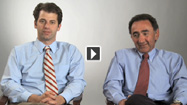Teacher responses to the 2010 release
The following is a list of teacher responses to their "value-added" ratings during the intial release in 2010. See the most recent responses »
The Times gave LAUSD elementary school teachers rated in this database the opportunity to preview their value-added evaluations and publicly respond. Some issues raised by teachers may be addressed in the FAQ. Teachers who have not commented may do so by contacting The Times.
|
|
 Delicious
Delicious
|
 Digg
Digg
|
 Facebook
Facebook
|
 Twitter
Twitter
|





I believe that teachers should be accountable for the success of their students. Unfortunately, by publishing only a single measure of teacher effectiveness,you are not painting an accurate portrait of teachers. Parent, student and administrator reviews are essential components of teacher evaluation. Test scores in isolation are misleading, and I hope your readers are aware of the impressive gains students make that are not measured by test scores.
August 27, 2010 at 6:20 p.m.
I would like to note that I was on maternity leave the 2008-2009 as well as 2005-2006 school years. I contacted the LA Times several times to relay this information. However, I still see that I am being evaluated from 2004-2009. In 2007 97% of my students improved on the CST in Language Arts, and in 2008 75% improved. I know this because we always made it a point to evaluate our test scores to see how we can better meet the needs of our students. Many of our students faced academic challenges, but I am proud of the progress we made. SFES made so much progress, that we are now out of PI status. This is all due to the hard work of the students, teachers, parents and the outstanding leadership of our school.
August 27, 2010 at 6:15 p.m.
(1) These were my first years as a teacher, so there was a learning curve. In more recent years my students' scores have shown much more growth than they did in the years reflected in this article, because I have grown as a teacher. (2) In my 8 years of teaching I have taught 5 grade levels, including a combination class. This is a common problem among many of the newer LAUSD teachers and something that should be addressed. (3) I have moved to a school with a very supportive administration that has supported me as a teacher in ways I was not supported early in my career. I hope that the LA Times plans to research and publish articles relating to administrators' effects on schools. (4) The LA Times website claims that, "Research has repeatedly found that teachers are the single most important school-related factor in a child’s education." While this may be true, school is not the only factor in a child's life and education that affects her or his scores. Degree of English proficiency, and more importantly the child's home environment and background, have a huge affect on performance. I feel that singling us out by name is putting an unfair amount of pressure on us by saying that it's our teaching that is causing students to either succeed or fail, when in fact it is a wide variety of factors. (5) There are about a million other factors that need to be discussed, and I think that while this is a very worthwhile conversation to have, comparing teachers' scores is not the way to do it. (For example, if I followed a strong teacher, my students would appear to have gone down in their scores, making me look like a less effective teacher. If I followed a weak teacher, my job in raising kids' scores would have been extremely easy because their previous year's scores would have been low.)
August 27, 2010 at 5:37 p.m.
The problem with this is that you do not know which students I teach. You might know who my homeroom students are, the students on my official roster, but I do not teach these same students english or math. At Haynes we team teach and our students switch classes for the academic subjects. We have been doing this for at least 9 years and at all grade levels (except K). As a result, the results above are not accurate, and possibly not even close to accurate.
Also, from reading the Times I get the impression that teachers do not see their individual students CST test scores. In the 12 years that I have been teaching I have seen these scores every year. I know exactly how each of my students did on the tests.
There is always room for growth and improvement, and I am not against evaluating teachers, but your series does more harm than good for education. If The Times goes ahead and publishes the individual rankings of individual teachers, you will have crossed the line. I will take a stand and cancel my subscription (which I've had for 20 years) to the LA Times.
August 27, 2010 at 5:27 p.m.
No longer employed by LAUSD.
August 27, 2010 at 5:05 p.m.
This was a brand new school that after the first year lost half the staff and in the second year a third. It was also an affiliated charter school and teachers were provided limited support in implementing and designing an "inquiry" based learning environment. The first principal was an ineffective leader, which in part, resulted in the large teacher turn-over. When examining and analyzing "value-added", there needs to be the presentation of all the facts and factors that contribute to creating a successful or unsuccessful learning environment. I have been a teacher for ten years and the measure of my success are former students who have invited to their high school graduation and I know along the way, I have helped them reach this for goal before entering college. In addition, the vast of majority of my students were at Advanced and/or Proficient and remained in that category in Mathematics, English and Science.
August 27, 2010 at 4:44 p.m.
We teach in an urban school district. We teach all children who come to us no matter what their academic level. I have never met a teacher who did not want their students to succeed. Within any classroom one can find students of every ability level from those who struggle at every turn to those that excell at all things. We teach, enrich, and counsel all while following a district mandated curriculum. Often this curriculum is a one size fits all approach that must be constantly modified to address the needs of the 36 individuals who come to us each day. Teachers in the LAUSD are burdened also by enough district mandated paperwork to clear a forest. But, what makes us special is that we care. We care for each and every one of those students who come to us. We collaborate and continually improve our skills so that we may bring the best to our students. ALL OF US - ALWAYS!
Mary E. Johnson
August 27, 2010 at 4:15 p.m.
There needs to be a better way of evaluating a teacher’s true effectiveness in the classroom. A teacher disseminating information is one thing, but infinitely more important is nurturing a genuine desire within his or her students that will promote their own academic achievement and success. A teacher’s true effectiveness lies in their skill level, but it also depends on how much they genuinely care. We are dealing with human behavior and caring is part of the equation. When we learn to evaluate altruistic, philanthropic, and creative personalities within each teacher, we will better determine effectiveness. Until then, we will have to rely on the students’ post examination data, which is a partial indicator, but certainly not the whole story.
August 27, 2010 at 3:49 p.m.
My overall value-added score was " most effective" and my class made great gains, some students jumping two levels. Only one student stayed on the same level in language arts.
Here is the catch - this report does not show how many students were out of the classroom excessively, nor how many students came late everyday. It doesn't show who failed to do home- work nor how many students behavior was disruptive to the entire class.
Teachers are required to deal with so many different situations, personalities and problems. I am the same teacher who is in the" most effective" category but if I had the ELD 1 or 2 students my gains would not be the same. If all students were the same and all conditions the same, then you could judge everyone equally.
P.S. 3 of my students scored a perfect 600 on the Math CST.
August 27, 2010 at 3:02 p.m.
The Times' comments on teacher effectiveness, to the extent that they are meaningful, will be helpful to us. However, I urge the Times to place detailed focus on the significant impact which special, "outlier" students have on our classrooms. Special students include students with identified learning disabilities, students in migrant worker families who often lack adequate nutrition and stability, and students raised from birth in homes where absolutely no academic English is spoken. As a designated bilingual teacher, I'm fortunate to teach students in these categories almost exclusively. They are wonderful learners, but they learn in different ways and at very different rates than average students. As a responsible community member, the Times must carefully consider how the presence of very significant numbers of special students, with learning traits lying on the very edges of the "bell-shaped curve" impact our published teacher ratings. Thank you.
August 27, 2010 at 2:50 p.m.